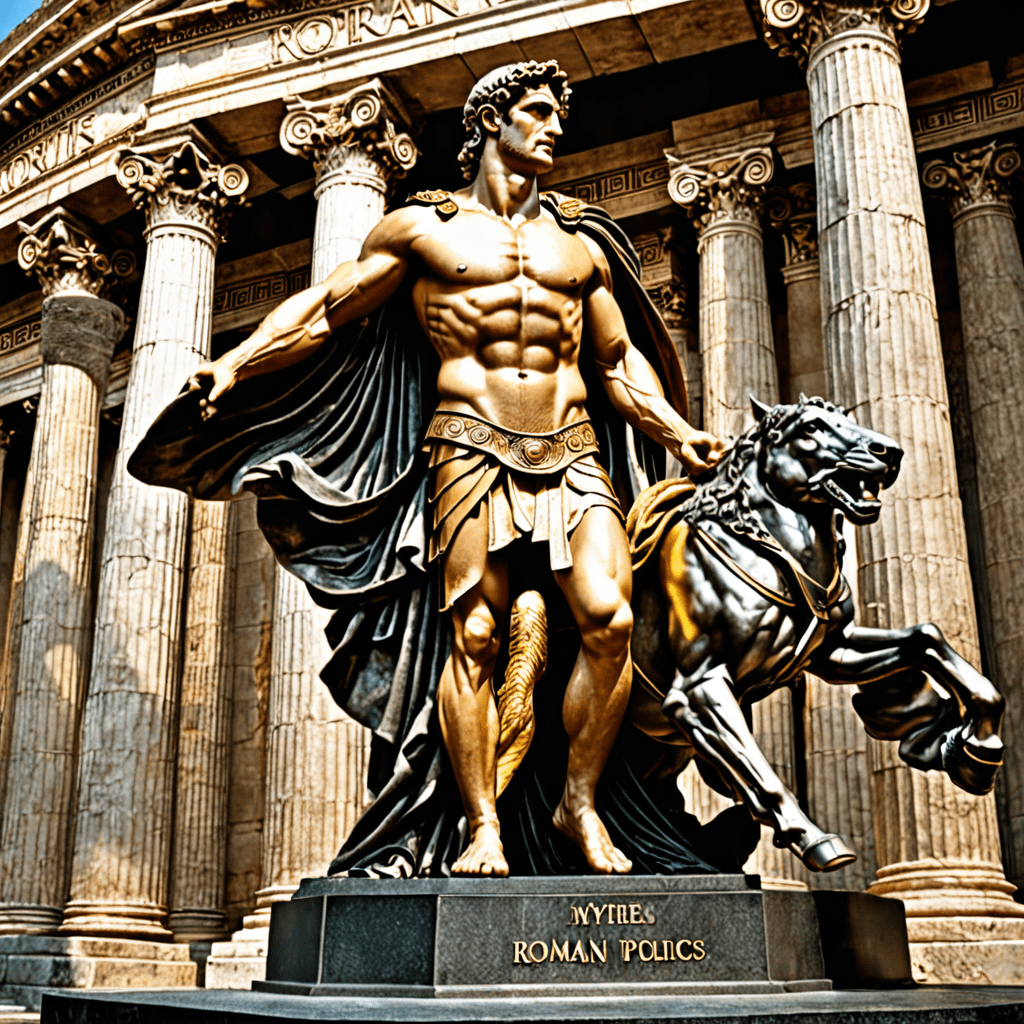The Influence of Roman Mythology on Roman Politics
Roman mythology, deeply intertwined with the Roman way of life, played a significant role in shaping political structures and decisions in ancient Rome. Let’s delve into the influence of Roman mythology on Roman politics.
1. How Did Roman Mythology Impact Political Leadership?
In ancient Rome, myths and legends often validated the authority of political leaders. Roman emperors frequently tied themselves to mythical gods and heroes to enhance their legitimacy and win favor with the people. For example, Augustus claimed descent from Venus, emphasizing his connection to the divine which boosted his power and influence.
2. Role of Gods and Goddesses in Political Decision-Making
Roman gods and goddesses were considered guardians, ideologies, and sources of power. Leaders sought divine favor through rituals, sacrifices, and temple constructions to ensure success in political endeavors. For instance, Mars, the god of war, influenced decisions related to military campaigns and strength, guiding emperors in battles and conquests.
3. Influence on Governance and Civic Order
The Roman concept of “pietas,” a virtue encompassing duty, respect, and loyalty to the state and family, was reinforced by myths and stories of honorable heroes. These moral tales emphasized the importance of obeying laws, contributing to the stability and orderliness of Roman society and politics.
4. Symbolism in Architecture and Monuments
Roman political architecture and monuments often incorporated symbolism from mythology to showcase power, achievements, and divine connections. The Pantheon, dedicated to all Roman gods, served as a testament to the divine influence over the empire, reinforcing the unity of faith and politics.
FAQ: The Influence of Roman Mythology on Roman Politics
What role did Roman mythology play in shaping Roman politics?
Roman mythology had a profound influence on Roman politics by providing a shared set of beliefs, values, and symbols that reinforced the authority and legitimacy of the ruling class. Myths were used to justify laws, decisions, and even wars, aligning them with divine will.
How did Roman leaders use mythology to maintain power?
Roman leaders often presented themselves as descendants of mythical gods or heroes, linking their rule to divine origins. By associating themselves with powerful mythological figures, rulers enhanced their prestige and solidified their authority over the people.
Did Roman mythology impact the governance structure in ancient Rome?
Yes, Roman mythology played a significant role in shaping the governance structure of ancient Rome. The concept of the Roman state being protected by specific gods and goddesses, such as Jupiter and Minerva, influenced decision-making processes and strategies employed by the ruling elite.
Were there instances where Roman myths were used for political propaganda?
Absolutely, Roman myths were frequently utilized for political propaganda. Rulers commissioned artworks and monuments depicting mythological scenes to promote certain political agendas, glorify military conquests, or legitimize dynastic successions. Such propaganda aimed to garner public support and maintain social order.





